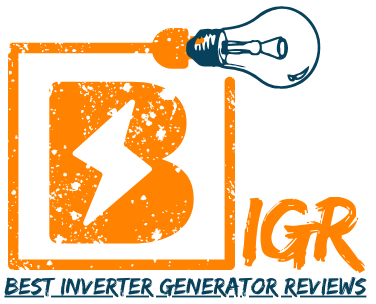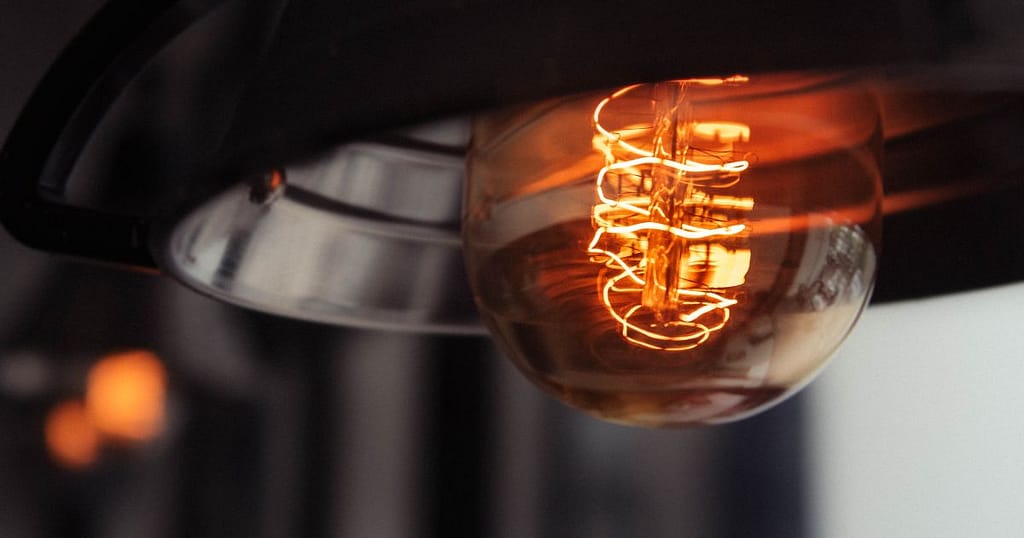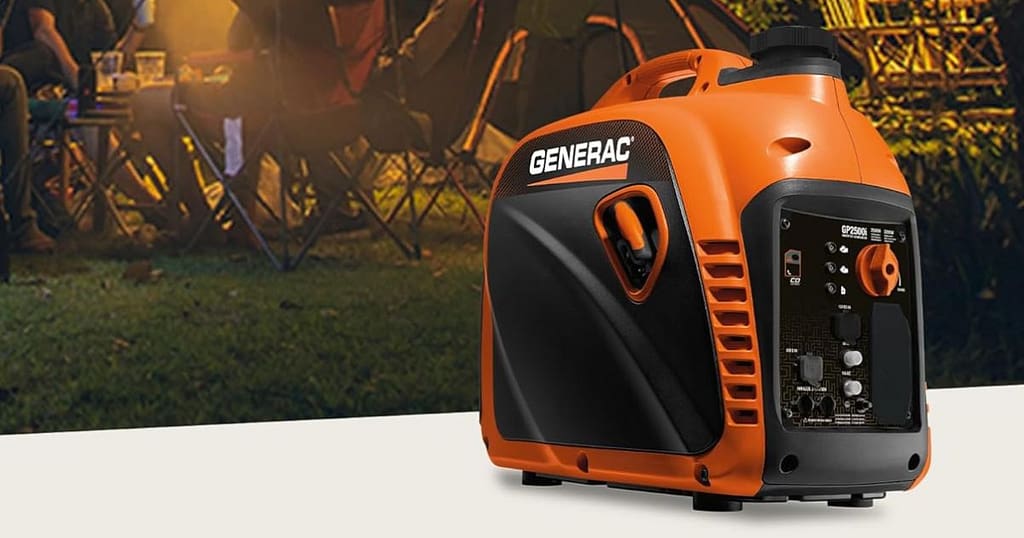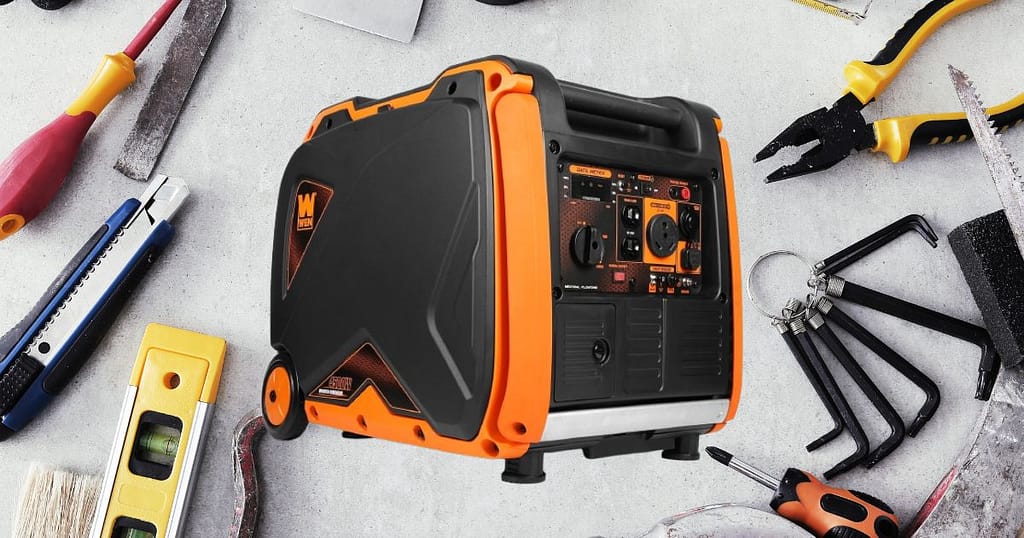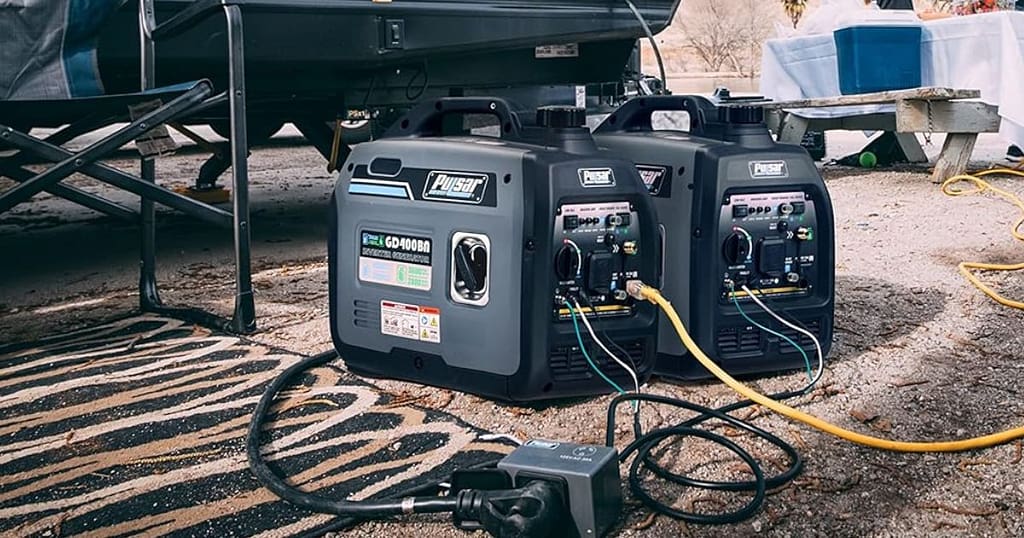Power outages can happen unexpectedly and can leave you without access to essential appliances such as your refrigerator, air conditioning, and heating systems. In such situations, portable generators can come in handy and provide you with the electricity you need to keep things running. However, it is essential to know how to safely operate your portable generator during power outages to avoid injury or damage to your property. In this blog post, we will discuss some tips for safely operating your portable generator during power outages.
How to Operate Portable Generator in Power Outage in 2025
1: Choose the right generator:
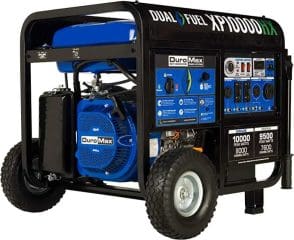
Imagine you are in the middle of a stormy night, and suddenly, the power goes out. Your house is plunged into darkness, and all the appliances that you depend on for your daily routine are rendered useless. In such a situation, a portable generator can be a lifesaver. It can provide you with the power you need to keep your lights on, your phone charged, and your food refrigerated.
However, not all generators are created equal, and choosing the wrong one can lead to frustrating and potentially dangerous situation. That’s why choosing the right generator or inverter generator for your needs is important.
One of the most critical factors to consider is the power output of the generator. Portable generators are typically rated by their maximum power output, measured in watts. This number indicates how much power the generator can deliver at any given time. It’s important to choose a generator that can provide enough power to run the appliances you need during the outage.
To determine the appropriate size of the generator, you need to consider the power requirements of the appliances you plan to run. For example, a refrigerator typically requires between 600 and 800 watts, while a sump pump may require up to 1500 watts like Jackery 1500 or you need 2000 watt inverter generator. Add up the wattage requirements of all the appliances you plan to use simultaneously to determine the minimum power output you need from your generator.
Once you know the minimum power output you need, you can choose a generator that meets or exceeds that requirement. Be sure to read the manufacturer’s instructions carefully to ensure that you are using the generator safely and effectively.
In summary, choosing the right generator is essential to ensure that you have the power you need during an outage. Take the time to carefully consider your power needs and choose a generator that can meet or exceed those requirements. By doing so, you can ensure that you and your family stay safe and comfortable, even when the power goes out.
There are some top class generators in the market for power outages:
2: Follow manufacturer’s instructions:
When it comes to using a generator, it is crucial to select the appropriate one for your needs. But even after you have made that choice, your work is not done yet. It’s equally essential to understand how to set up, operate, and maintain the generator properly. That’s where the manufacturer’s instructions come in.
The manufacturer’s instructions provide a comprehensive guide on everything you need to know about your generator, from the initial setup to ongoing maintenance. These instructions include critical information on how to connect the generator to power sources, how to safely turn it on and off, and how to avoid potential hazards.
One of the most important reasons to follow the manufacturer’s instructions is safety. Generators can pose serious risks if not used correctly, including electrical shocks, fires, and even death. The manufacturer’s instructions will provide detailed safety guidelines to prevent accidents and ensure safe operation.
Additionally, following the manufacturer’s instructions can also prolong the life of your generator. These instructions will provide guidance on how to maintain the generator correctly, including regular cleaning and inspections, oil changes, and filter replacements. Proper maintenance can prevent breakdowns and extend the lifespan of your generator.
3: Proper ventilation:
Proper ventilation is crucial when operating a portable generator. Portable generators are incredibly useful in many situations, such as camping trips, power outages, or outdoor events, but they can also be extremely dangerous if used improperly. One of the most significant risks associated with portable generators is the production of carbon monoxide gas. Carbon monoxide is a colorless, odorless, and tasteless gas that is extremely toxic and can lead to carbon monoxide poisoning, which can be deadly.
Carbon monoxide poisoning occurs when a person inhales too much carbon monoxide. When you breathe in carbon monoxide, it enters your bloodstream and binds to hemoglobin, a protein in your red blood cells that carries oxygen. When carbon monoxide binds to hemoglobin, it prevents oxygen from reaching your organs and tissues, causing them to slowly suffocate. Symptoms of carbon monoxide poisoning include headaches, dizziness, weakness, nausea, vomiting, chest pain, confusion, and loss of consciousness.
To prevent carbon monoxide poisoning, it is crucial to operate your portable generator in a well-ventilated area. This means that you should never operate your generator indoors or in an enclosed area, such as a garage or basement. Instead, you should always operate your generator outside in a well-ventilated area, such as an open field or a well-ventilated shed.
Proper ventilation is essential to allow the exhaust fumes from your generator to dissipate quickly. Exhaust fumes contain carbon monoxide and other toxic gases that can build up quickly in enclosed areas, leading to carbon monoxide poisoning. To ensure proper ventilation, you should never place your generator near open windows, doors, or vents. Instead, you should place it at least 20 feet away from your home or any other building and direct the exhaust fumes away from people and animals.
In addition to proper ventilation, you should also make sure that your generator is well-maintained and that it meets all safety standards. This includes checking the oil and fuel levels before each use, replacing any damaged or worn-out parts, and following all safety instructions provided by the manufacturer. By taking these steps, you can ensure that your portable generator operates safely and reliably, providing you with the power you need when you need it, without putting yourself or others at risk of carbon monoxide poisoning.
4: Use proper extension cords:
Proper use of extension cords is critical when connecting appliances to your generator. The quality and type of extension cord used can impact the performance and safety of your appliances, and it is essential to understand how to choose the right extension cord for your generator.
Firstly, it is essential to know that not all extension cords are the same. There are different types and sizes of cords available in the market, and each type is designed for a specific purpose. For example, some cords are designed for indoor use, while others are suitable for outdoor use. Similarly, some cords are made for heavy-duty applications, while others are suitable for low-power devices. Therefore, it is crucial to understand the differences between the cords and choose the right type based on your needs.
Secondly, it is important to choose the right size of extension cord for your generator. Using an inadequate extension cord can result in voltage drop, which can damage your appliances or cause a fire. When the cord is too long or too thin, the resistance in the cord increases, causing voltage drop. The voltage drop can lead to a decrease in the power available to the appliance, which can cause it to overheat and damage it. Moreover, the excessive heat generated by the appliance can lead to the insulation on the cord melting, which can cause a fire.
Therefore, it is crucial to check the manufacturer’s instructions and determine the correct cord size for your generator. The manufacturer’s instructions will provide information on the appropriate size of extension cord to use for your generator based on its wattage rating and the distance between the generator and the appliance.
5: Turn off appliances before shutting down the generator:
Imagine this scenario: you’re experiencing a power outage and you decide to turn on your trusty generator to keep your home appliances running. You connect your TV, refrigerator, air conditioner, and other devices to the generator and everything is running smoothly. However, when it’s time to shut down the generator, you forget to turn off your appliances first. Suddenly, you hear a loud pop and see a bright flash as a power surge occurs, damaging your TV and causing a small fire in your home.
This is the nightmare that you can avoid by simply remembering to turn off all appliances before shutting down the generator. When a generator is running, it provides a continuous flow of electrical power to the connected devices. However, when the generator is turned off, this flow is suddenly cut off, causing a sudden surge of electricity. This surge can be too much for your appliances to handle, causing damage to the devices or, in some cases, even creating a fire hazard.
By turning off your appliances before shutting down the generator, you allow the flow of electrical power to stop gradually, avoiding any sudden surges. This can protect your appliances and keep your home safe. Additionally, it’s important to remember that different appliances have different power requirements and may need to be turned off at different times. For example, turning off your refrigerator and air conditioner first, followed by your TV and other devices, can help prevent any damage or hazards.
6: Maintain your generator:
Your generator is an essential tool that provides you with backup power in case of an emergency or power outage. However, it’s important to remember that like any other machine, your generator requires proper maintenance to ensure it continues to function efficiently and safely. Neglecting the maintenance of your generator can lead to breakdowns, increased fuel consumption, and even safety hazards.
One of the most important aspects of generator maintenance is regularly checking the oil level, air filter, and fuel level. Low oil levels can cause damage to the engine, while a dirty air filter can reduce the efficiency of the generator and increase fuel consumption. Checking the fuel level is also crucial to ensure that your generator has enough fuel to operate when needed. Make sure to check these components on a regular basis and replace them when necessary.
Additionally, it’s important to follow the manufacturer’s instructions on maintenance, including when to change the oil, spark plugs, and air filter. Each generator model has its own set of maintenance requirements, and failure to follow these guidelines can cause serious problems. It’s important to keep a record of when maintenance was performed and when the next service is due.
Proper maintenance not only keeps your generator running efficiently and safely, but it also extends the life of your generator. By taking care of your generator, you can ensure that it will be ready to provide power when you need it most. Neglecting maintenance, on the other hand, can lead to costly repairs or even the need for a new generator.
Conclusion
In conclusion, a portable generator can provide a reliable source of power during a power outage. However, it is essential to operate your generator safely to avoid accidents or damage to your property. By following the tips provided in this blog post, you can safely operate your portable generator during power outages and keep your home running smoothly.
How to Safely Operate Your Portable Generator During a Rainy Day
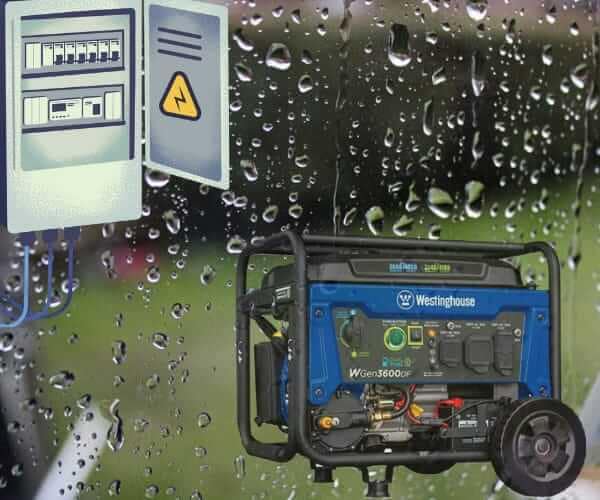
Portable generators can be a lifesaver during power outages or other emergencies, but using them during rainy weather can pose additional risks. In this blog, we will discuss some important safety tips that you should keep in mind when using a portable generator during a rainy day.
We will cover topics such as how to properly ground your generator, how to protect it from water damage, and how to avoid electrocution. By following these guidelines, you can ensure that your portable generator remains a safe and reliable source of power even during wet conditions.
Whether you are using your generator for camping trips, outdoor events, or as a backup power source for your home, it’s important to take precautions to prevent accidents and ensure your safety. So, let’s dive into the tips and tricks for safely operating your portable generator during a rainy day.
Keep Your Generator Dry
The first and most important rule when operating a generator in the rain is to keep it dry. Water and electricity don’t mix, so you should never operate your generator in the rain without a proper cover. A generator should be kept in a dry and well-ventilated area, and it should never be placed on wet ground.
If you must operate your generator during a rainstorm, you should invest in a generator cover. A generator cover is a waterproof and weather-resistant cover that will protect your generator from rain and other weather elements. You can purchase a generator cover from most home improvement stores or online retailers.
Use a Ground Fault Circuit Interrupter (GFCI)
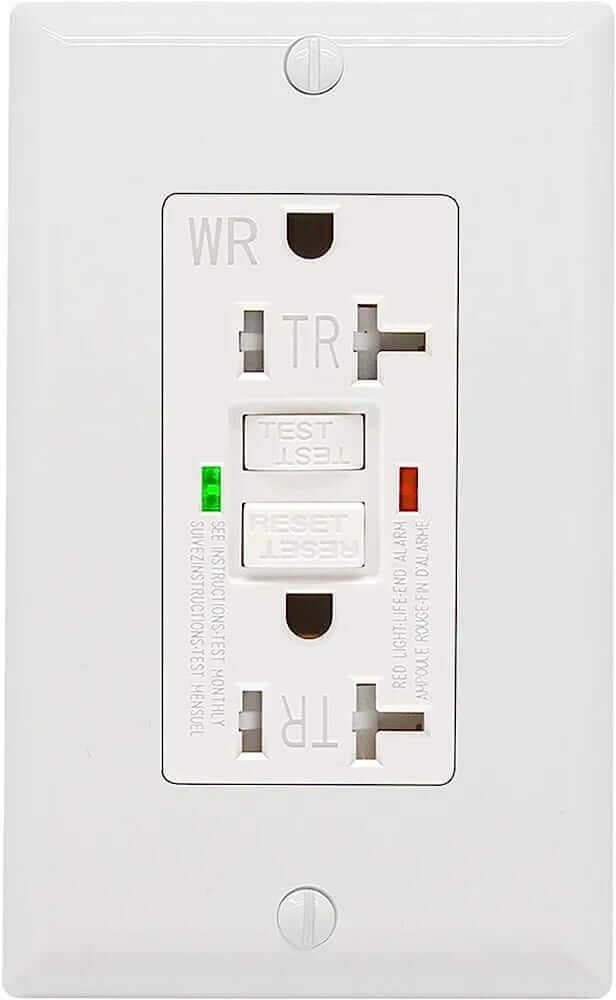
A ground fault circuit interrupter (GFCI) is a safety device that helps prevent electrical shock. It’s important to use a GFCI when operating your generator in wet conditions, as it can help prevent electrocution. A GFCI works by detecting a ground fault and interrupting the circuit before an electrical shock occurs.
You can purchase a GFCI from most home improvement stores or online retailers. It’s important to follow the manufacturer’s instructions when installing and using a GFCI.
Do Not Operate Your Generator in Enclosed Spaces
It’s important to never operate your generator in enclosed spaces, as it can lead to carbon monoxide poisoning. Carbon monoxide is a deadly gas that is produced by the combustion of fuel. It’s odorless, colorless, and can lead to death in a matter of minutes.
If you need to use your generator during a rainy day, make sure you place it in a well-ventilated area, away from windows, doors, and other openings that could allow carbon monoxide to enter your home.
Keep Your Generator Grounded
Proper grounding is essential when operating a generator. Grounding provides a path for electricity to flow safely in the event of a fault or short circuit. It’s important to ensure that your generator is properly grounded when operating it during a rainy day.
To ground your generator, you should use a grounding rod, which is a metal rod that is inserted into the ground. The grounding rod should be at least 8 feet long and should be placed in the ground at a distance of at least 6 feet from the generator.
Follow the Manufacturer’s Instructions
Finally, it’s important to always follow the manufacturer’s instructions when operating your generator. Each generator is different, and the manufacturer’s instructions will provide specific guidance on how to safely operate your generator in various conditions, including rainy days.
Conclusion
In conclusion, operating a generator during a rainy day can be dangerous, but by following these simple safety tips, you can ensure that you and your family are safe. Remember to keep your generator dry, use a GFCI, never operate your generator in enclosed spaces, keep your generator grounded, and always follow the manufacturer’s instructions. Stay safe!
